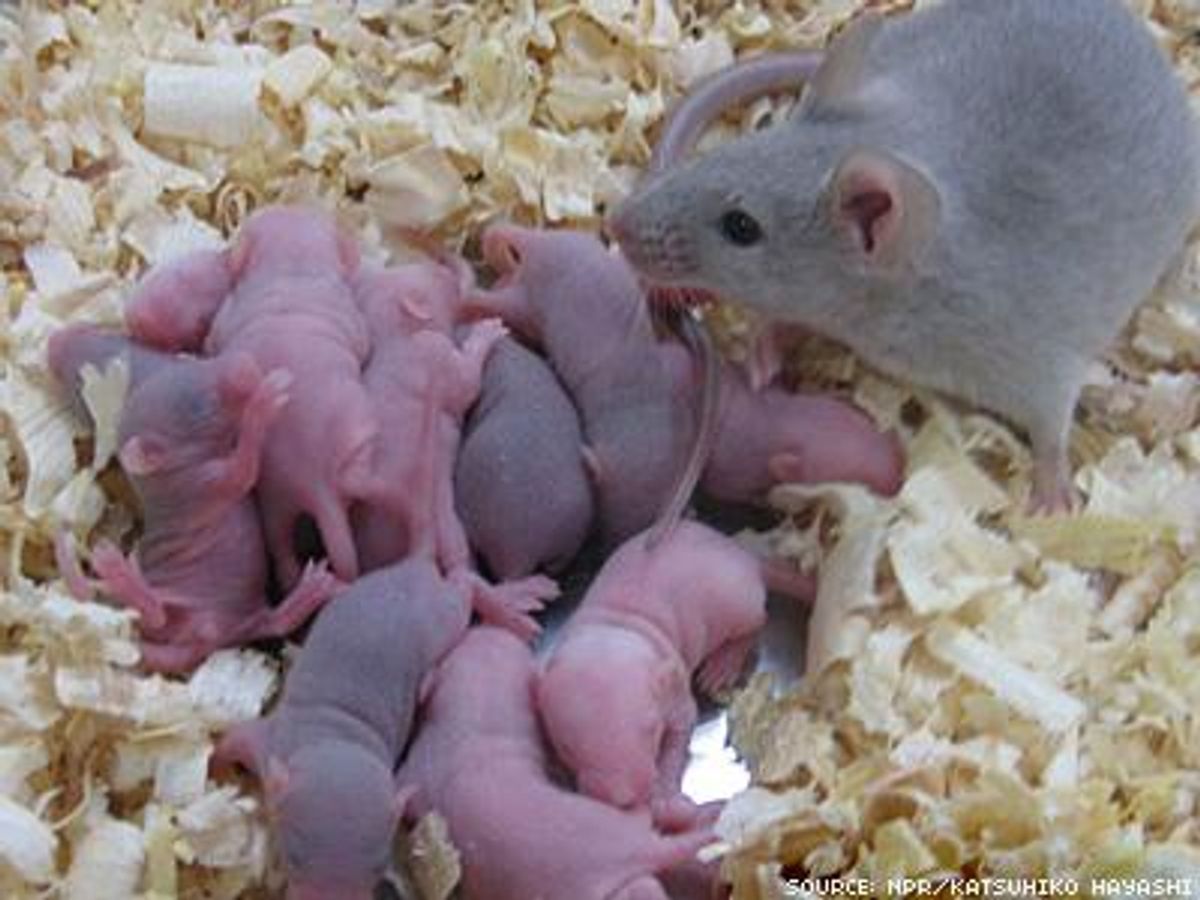A breakthrough in fertility research lays open the possibility that gay and lesbian couples could someday have children who are completely their own, genetically speaking.
Researchers at Kyoto University in Japan have created eggs from stem cells in mice and used them to produce healthy offspring, NPR reports. They first used embryonic stem cells, then repeated the results stem cells created from adult cells, such as blood or skin. The same team previously created sperm from stem cells. "Stem cells can morph into any cell in the body," observed NPR reporter Rob Stein.
If the results from mice could be duplicated in humans -- a far-off possibility, granted, but scientists say mice are sufficiently similar to humans that it could happen -- same-sex couples could create their own sperm and eggs and join them to have a child.
"There are lots of lesbian and gay couples who would be very excited about the possibility for the first time of being able to have children who are genetically their own," Hank Greely, a bioethicist at Stanford University, told Stein.
Such a breakthrough could also help women who have passed their childbearing years or who are infertile for medical reasons. It raises some questions, though, about the ethics of the procedure, scientists said. For instance, could prospective parents create a child with certain desired traits, and would it be morally acceptable for them to do so?
"It's like any other technology," said Daniel Sulmasy, a professor of medicine and ethics at the University of Chicago. "Whatever we've done in humankind -- whether it's discovering fire or creating the wheel -- you can use these things to do lots of good and you can use them immoral ways."
The Kyoto University study was published in this week's issue of the journal Science.



















































































